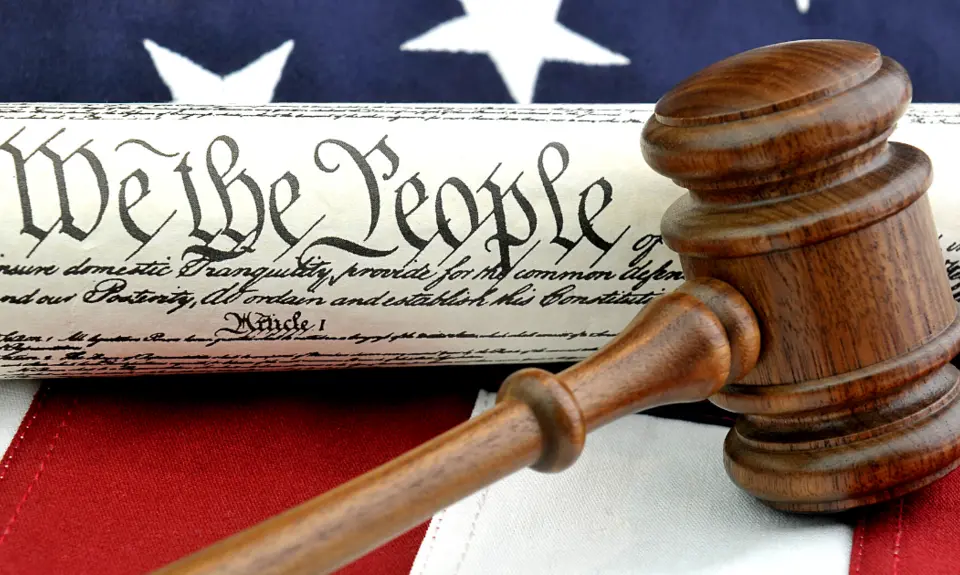“Confirmed Judges, Confirmed Fears” is a blog series documenting the harmful impact of President Trump’s judges on Americans’ rights and liberties. It includes judges nominated in both his first and second terms.
Judge Marvin Quattlebaum, nominated by Donald Trump to the federal court of appeals for the Fourth Circuit, issued a decision staying a preliminary injunction by a district court that had stopped Elon Musk and his Department of Government Efficiency (DOGE) from dismantling the US Agency for International Development (AID). Judge Paul Niemeyer, who was nominated by President George H.W. Bush, agreed. Judge Roger Gregory, who was nominated by President George W. Bush, concurred in the result only and strongly disagreed with the merits of the March opinion in J Does 1-26 v Musk..
What happened in this case?
One of the important agencies attacked under the second Trump Administration has been US AID. Earlier this year, a group of 26 unidentified AID employees and contractors sued Musk and DOGE for their actions in dismantling AID, such as canceling AID contracts, firing or putting on leave AID employees, and taking down the AID website. They contend that these actions violate the Constitution’s Appointments Clause because Musk was never properly appointed to his position, and that they infringe on Congress’ authority with respect to AID and thus violate the separation of powers.
A Maryland district court issued a preliminary injunction against Musk and DOGE, halting their efforts to dismantle AID as the lawsuit continues. They filed an appeal with the Fourth Circuit and brought a motion to stay the preliminary injunction while the appeal goes on.
How did the appeals court decide and why was Judge Quattlebaum’s opinion dangerous?
The Fourth Circuit issued a brief unsigned order that stayed the trial court’s preliminary injunction. Judge Quattlebaum wrote an extensive opinion explaining the result that was joined by Judge Niemeyer. Judge Gregory wrote an opinion concurring in the result but strongly disagreeing.
Quattlebaum claimed that while Musk has been an advisor to the President and played a role in that has srongly affected what has happened at AID, the actual cuts were made or approved by government officials like Secretary of State Rubio. While Musk’s role may be “unconventional”, he wrote, “unconventional does not necessarily equal unconstitutional.” In addition, Quattlebaum wrote, none of the actual government officials who carried out or ratified the actions complained of were named as defendants in the complaint, so there is no “strong likelihood” of success on the separation of powers claim. While the case can go forward and evidence may develop that will favor the plaintiffs, Quattlebaum concluded, the current “record does not support” the preliminary injunction.
Judge Gregory concurred in the result of the case, since he agreed that it was fatal for the plaintiffs not to name any actual government official who could carry out preliminary or other orders to restore AID and its functions. He strongly disagreed, however, with Quattlebaum’s opinion on the merits of the case.
With respect to separation of powers, he explained in detail that under controlling precedent, the Executive branch “may not eliminate a congressionally created and funded agency” like AID “without congressional authorization.” “By doing so here,” he went on, the Executive branch “violated a core tenet of our Constitution” concerning Congressional authority and the separation of powers.
With respect to the Appointments Clause, Gregory wrote that a President cannot bypass the “structural safeguard” of the Constitution and “unilaterally select Officers to wield incredible power without legislative oversight” – either through advising and consenting on individual nominees or creating agencies to which the President may select appointees. The record in the case strongly suggests, he went on, that such bypassing “seems to be exactly what the Executive Branch and Musk have done,” in clear violation of the Appointments Clause.
This case, as well as other actions, will continue with respect to AID. In the meantime, the ruling in which Quattlebaum cast the deciding vote will allow Musk and DOGE to continue with their conduct to effectively dismantle AID, causing serious worldwide harm. The case also illustrates the importance of our federal courts to health, welfare and justice and the significance of having fair-minded judges on the federal bench.
